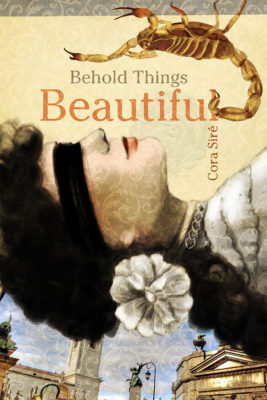“Turn out the lights… words emerge fragile as sprigs…and behold things beautiful. You exhale. Close all doors and enter illusion…the words pull you elsewhere. To a desk, clean hands holding a book, your former self, safe and sane. Briefly you remember who you are.”
These are some of the thoughts of Alma Álvarez, a CEGEP teacher and the protagonist of Behold Things Beautiful, as she begins to understand why she has returned to her home country of Luscano. Initially she thought she was returning to deliver a lecture on the poet Delmira Agustini, and to visit her moribund mother. In 1991 the military junta had imprisoned Alma for a week. She was one of the lucky ones who got out alive; 387 others did not. She fled to Montreal immediately after. It’s now 2003.
The novel portrays a gallery of characters: torture survivors, relatives of the desaparecidos, beneficiaries of the torture and assassinations, members of the secret resistance, and even the torturers themselves. Behold Things Beautiful is also about femicide, which Siré keeps in the foreground through Alma’s obsession with the poet Delmira Agustini, who was shot by her husband in a murder-suicide. The title of the novel is a fragment from a line of an Agustini poem that’s quoted at length towards the end of the novel. Exile is another subtheme, conveyed through Alma’s own feelings of exile in Montreal; we sense it too in the character of Gabriel, whose brother Roberto is one of the desaparecidos.

Behold Things Beautiful
Cora Siré
Signature Editions
$19.95
paper
256pp
9781927426890
Writing this novel was an ambitious but successful undertaking. Siré wanted Luscano, which “is an amalgam of Uruguay, Argentina and Chile in miniature,” to be a stage where readers witness – and contemplate – the self-inflicted atrocities of humanity. Even so, the scenic beauty of Luscano is graphically depicted. Siré even invents a history for Luscano, one that parallels the bloody and tumultuous histories of the region. Importantly, Agustini’s poem, placed strategically at the end of the narrative, urges readers to “Turn out the lights and behold things beautiful; / Close all doors and enter illusion.” When the lights are out our vision turns inward, to our inner selves. What do we then see? But there are also those who turn out the lights to avoid seeing at all.
Siré’s omniscient narrator is effective for the novel’s purpose. For the narrative to achieve its impact, it’s essential that we be privy to the thoughts of the more important characters, observe the games they play with themselves, and discover what they are afraid to reveal. But the most enthralling sections of the novel are those where Alma speaks in her own voice. This reviewer wonders whether the discrete sections on Agustini – interesting to read in themselves – wouldn’t have been more effectively integrated into Alma’s own story.
This is a richly textured novel that reflects extensive knowledge of the performing and visual arts. Siré’s creation of ambiance is impressive.






0 Comments